- Home
- Bonnie Bryant
Horse Games Page 2
Horse Games Read online
Page 2
Crystal was sleeping when Carole entered her hospital room. She looked so peaceful and contented that Carole couldn’t bring herself to wake Crystal up. Instead, she put the teddy bear by the sleeping child’s arms. Instinctively, Crystal hugged the stuffed animal and drew him to her chest. A smile crossed the child’s face. Carole smiled, too, and tiptoed out of the room.
“Hi, there.” A familiar voice greeted her as she approached the elevator. The words were warm, but the tone was oddly flat and ironic. “Have you come to spread more cheer?” Carole turned. It took her a second to recognize the girl who was talking to her. Then it came to her.
“Oh, hi,” Carole said. “I remember you. Marie Dana, right?” Carole was trying to sound casual, but the fact was, she couldn’t forget the girl. When she’d seen her at the festival, Marie had been confined to a gurney—a stretcher on wheels. She’d had to lie absolutely flat on her back because of a broken pelvis. She’d been grumpy and almost rude at the festival. Now, she was up and walking, with the help of some crutches. Carole hoped that was improving her mood, too. “Looks like you’re getting better, huh?”
“I guess that’s what it looks like,” Marie said. From the way she said it, Carole knew that although her physical state was clearly better, emotionally she had not improved.
That was what Carole remembered the most about her. Marie had resisted all attempts to help her. It was almost as if she were determined to be unhappy.
“Are you still in the hospital now?” Carole asked.
“No. I’m just here for physical therapy. It’s something they make me do four times a week to keep my mind on how much it hurts to walk.”
Carole laughed. Marie smiled weakly in spite of herself.
“Are you still running pony-cart rides?” Marie asked.
“No, that was just for the day,” Carole said. “But I am riding a lot. In fact, I just came from there.”
“I know,” Marie said. She pointed to Carole.
Carole looked down and then blushed. No wonder Marie could tell she’d been riding. She was still wearing breeches and high boots. Her riding gloves poked out of her pocket. The only thing that was missing was her hard hat.
“It’s sort of a giveaway, isn’t it?” she said.
“Yeah,” said Marie.
There was a bing then, and the elevator arrived. Carole stepped on first and held the door while Marie walked on slowly, using crutches.
There were a lot of other people on the elevator. Carole didn’t feel like talking as they rode down, stopping at almost every floor. She stood quietly, but her eyes watched Marie’s back and her mind raced. There was a very special quality about Marie. Carole didn’t know what it was, but she instinctively recognized that they had things in common and that Marie wanted to talk to her. Marie’s sharp tongue and grumpiness couldn’t hide the fact that she needed a friend. Carole wondered if she could be the friend and, if she could, what good it would do Marie.
The elevator drew to a stop at the ground floor. Marie stepped off slowly. Carole followed her.
“Is somebody meeting you?” Carole asked. “I mean, my dad is waiting for me outside. We could give you a lift.”
“No thanks. I just finished up my therapy a little early today, so my mother isn’t here yet. That’s funny, too, because since the accident, she’s barely wanted to let me out of her sight.”
“Is she afraid it will happen again?” Carole asked. She was trying to make a little joke out of it. After all, she knew what it was like to have a parent who sometimes cared too much.
“No, I don’t think so,” Marie said. “It’s more like she’s afraid she’ll lose me, too. See, my father was killed in the same accident that put me in the hospital.”
That was it, then. That was what Carole had intuitively sensed that was their common bond. They had each had a parent die, Carole’s mother from cancer, Marie’s father in an accident. Carole wanted to say something, but an odd thing happened. She and Marie had the most important thing in the world in common and she didn’t know what to say. She didn’t know how to tell her that she really did know how much it hurt. Sharing her own sadness didn’t seem like the right thing to do just then.
“I’m sorry,” was all Carole said. “Really.”
“Thanks,” Marie said. Then she winced and Carole got the feeling her legs were hurting her.
“Want to sit down a minute?” Carole asked.
Marie nodded. Carole led her to a bench in the lobby of the hospital and sat down next to her. It was an awkward moment. There was a lot Carole wanted to say and even more she wanted to ask, but she had the feeling that Marie didn’t want to talk about what she had just told Carole. Carole switched the subject to the one she always felt the most comfortable with.
“Have you ever done any horseback riding?”
Marie laughed. “That’s funny,” she said.
Carole didn’t think it was funny at all. She certainly hadn’t meant to be funny. “How’s that?” she asked.
“Well, you’re the second person to ask me that in just a few minutes. The therapist upstairs wanted to know, too.”
“And what’s the answer?” Carole asked expectantly.
“I guess it’s yes. I used to ride before the accident. Not much, just a little,” she said.
“Did you like it?” Carole asked, though even as she asked it, she thought it was a strange question. She, herself, could not imagine not liking horseback riding.
“Sure,” Marie said. “You like it a lot, don’t you?”
“Yes,” Carole said. She was inspired by the question. “It’s about the most important thing in the world to me. I love horseback riding. I love horses. I even have my own horse. My dad gave him to me for Christmas. His name is Starlight. He’s a bay and he’s got this beautiful star right on his face. He’s pretty young and I’ve been working on finishing his training. I think he’s going to be wonderful. Someday, I hope I’ll be able to ride him in shows. I know he’ll win—though I don’t know about me, of course. Anyway, he’s terrific. You should meet him sometime. Would you like to?”
“What do you like better? Riding or talking about it?” Marie asked.
Carole smiled. “I know. My friends tell me that when I get started talking about horses and riding, there’s no stopping me. I’m sorry. I didn’t mean to be boring. It’s just that I think riding is wonderful. Everything about horses is wonderful. I mean, I even like it when I have to groom Starlight or take care of him in any way. I suppose that sounds weird, but, when you think about it, having a horse is a lot of responsibility as well as fun and the responsibility sort of makes the fun all the more—” She stopped abruptly. “Am I doing it again?”
“Yes,” Marie said, now almost laughing. It wasn’t a mean laugh, though. It was more like a friendly laugh.
“I think I’m incorrigible,” Carole said. “But I don’t mind. I like myself that way.”
“It’s okay,” Marie said. “I don’t mind, either.”
Just then a woman waved to Marie. The girl waved back. “My mother,” she said, though it wasn’t necessary. Marie looked just like her. Mrs. Dana was tall and slender. Her dark eyes were wide-set and bright. When she smiled the greeting to her daughter, Carole realized how pretty Marie would be if she ever smiled as broadly as her mother did.
“Done already? Did it go okay? What did the therapist say?” Mrs. Dana shot questions at her daughter faster than Marie could have answered them if she’d wanted to.
“Everything’s fine, Mom,” Marie said. “Let’s go.” Then, with some effort, the girl stood up using her crutches to help and followed her mother through the hospital lobby and out the doorway.
Carole waved and called good-bye to the Danas. Marie acknowledged it with a nod.
“See you,” Carole called.
Marie nodded again, this time more faintly.
Carole went out to her father’s car, opened the door, and got in. She expected him to be annoyed at how long it had taken
her to return Crystal’s teddy bear, but found instead that he was curious about who she’d been with.
“Oh, that’s a girl I met at the festival thing. She’s not staying in the hospital anymore. She was just there for some therapy.”
“And what about the woman with her?” her father persisted.
“That’s Marie’s mother, Dad,” Carole said.
“Oh,” he said, a little disappointed.
It took Carole a few seconds to figure out why her father sighed after he said “Oh.” Then it struck her.
“She’s a widow, Dad,” Carole explained.
“Oh,” he said more brightly.
“Her husband was killed in an automobile accident at the same time Marie got hurt.”
“Hmmmmm,” he said.
“Were you annoyed that I took so long?” she asked.
“No,” he said. “I was just concerned that you might have gotten sick and decided to stay there. And, by the way, how are you feeling? Any more sign of that fever you had earlier today?”
“I never did have a fever, Dad,” Carole said.
“But you were sick this morning,” he reminded her.
“No. You just thought I was sick. I’m in fine shape—healthy as a—”
“I remember,” he said. “You’re healthy as a horse. Just see to it you stay that way, okay?”
“Deal,” she said. She took his hand, which was resting on the seat of the car, and squeezed it. Sometimes it was a nuisance having a father who could start worrying about you at any moment. Most of the time it wasn’t a nuisance at all.
“HELLO?” STEVIE’S VOICE sounded sweet and cheery. It wasn’t exactly the way she felt, but it was the way she wanted a certain telephone caller to think she felt.
“Hi, it’s me,” Phil Marston said.
“Oh, wow, hi,” Stevie said. No matter what she was scheming, the sound of Phil’s voice was always welcome and she couldn’t help her enthusiasm. “I was hoping you’d call. Wait until I tell you what we did today in Pony Club.”
Phil waited. Stevie went on. “We actually learned how to play polocrosse. Can you believe it? I mean, after all, we were just talking about that earlier and boom that’s the very next activity Max had for us. It was a blast—just like you said it would be.”
“What position were you playing?”
“Attack,” Stevie said, trying to sound casual.
“Score many goals?” he asked.
“We only played one chukka,” she told him.
“Score any goals?” he asked.
“Just four—or was it five?” Stevie knew perfectly well that the answer was four, not five. And she also knew that that was the total number scored by both teams the entire day. Of those, two were disqualified because Attack was too close to the goal, another was disqualified because the ball had been carried over the penalty line, and the fourth wasn’t anything to boast about because it had been made in the team’s home goal. Stevie had not been personally responsible for any of those disasters. Her own goal attempt had missed completely. The ball had flown out of her racquet, off the playing field, and into the stable, startling three horses and a stablehand. Stevie didn’t think she needed to mention that.
“Hey, that’s pretty good for your first time at polocrosse,” Phil said.
“Oh, I don’t know. I think we’re going to get a lot better.” She certainly hoped so, anyway!
“Probably,” he said. “Practice makes a lot of difference in a game like polocrosse.”
“Well, maybe,” Stevie said. She didn’t actually doubt that he was right and she knew that her team would have to do a lot of practicing very soon, but she needed to take another angle right then. “Sometimes, though, I think if you simply practice with other people who are new at something, you just study mistakes. The best thing would be to actually play against somebody really good. Do you know anybody really good that we could learn from?”
“I’m not sure I’ve ever heard of any other team’s Attack that scored four or five goals in one chukka the first time it practiced,” Phil said. “I mean, what’s the point of trying to learn from somebody else when you’re already that good?”
Of all the nerve. He was as good as calling her a liar.
“You don’t believe me?” Stevie said.
“I didn’t say that,” he protested, but she knew he didn’t believe her and it annoyed her. It didn’t occur to her right then that he had a very good reason for not believing her and that was because what she’d said simply wasn’t true.
“Well, if you don’t think we’re very good, why don’t you just give us a chance to show you? I mean, all you have to do is bring a team over to Pine Hollow and you can see for yourself!”
“I might just do that,” Phil said. “As a matter of fact, there’s going to be a Pony Club rally in two weeks. Why don’t you ask Max if he thinks Horse Wise can compete against my club? I’ll talk to my team and see if they are interested in showing you guys a thing or two.…”
That was just what Stevie had been hoping for. She knew that if she boasted about how good they were, Phil would have to rise to the challenge and agree to a match.
“Done,” she said. “I’ll talk to Max on Tuesday.”
“I’ll call my instructor right now,” Phil said. “I’ll talk to you again next week—unless you’re too busy practicing to come to the phone!”
That’s just like Phil, Stevie thought. He was so competitive!
CAROLE PUT DOWN her book to answer the phone. She didn’t have much idea of what she’d been reading anyway. Her mind had been on Marie Dana, not her book report.
“Hi, Carole, I’m glad you’re there. Have I got something to tell you.”
It was Stevie, of course. Nobody else jumped into a phone conversation the way she did.
“Hi, what’s up?” It was impossible not to be drawn in by Stevie’s enthusiasm, no matter what it was about.
“Well, I just talked to Phil, and—guess what?”
“He’s taking you to opening night at the opera on Thursday?” Carole teased.
“Huh? Oh, no. It’s much better than that. He’s going to talk to his Pony Club instructor and see if they can play us in a polocrosse match at the next rally.”
“This is exciting?” Carole asked. “You thought his ego needed some sort of gigantic boost?”
“What do you mean?” Stevie sounded indignant.
“We’re going to lose badly. We don’t know what we’re doing out there,” Carole said.
“But that was just today. Wait until we’ve had a couple of practices. I mean, we are better riders. We know that.”
“You don’t mean ‘we,’ you mean you. Personally, I don’t care if I’m a better rider than Phil Marston. He’s a good rider and he takes care of his horse. That’s all that matters, isn’t it?”
“But he thinks he’s this great rider and he was so impressed with himself, telling me about all the goals he scored when he was Attack and all the ones he prevented when he was Defense. I just thought we ought to take him down a peg or two.”
Stevie wasn’t making an awful lot of sense. Sometimes she was like that, Carole knew. Although most of the time Stevie was quite sane, the fact was that she was very competitive—even when there wasn’t anything to be competitive about (like her own polocrosse “skills”). It was a lesson Stevie had learned before, though it didn’t seem to have stayed with her.
“Don’t you think so?” Stevie persisted.
Carole thought about it for a few seconds. “Well, I know it would be fun to play against Phil’s team. They may not be wonderful, but they do have some experience, so it would be good for us—”
“I knew you’d agree,” Stevie said. “I’ll ask Max about it on Tuesday after class. I know he’ll say yes, too. Right now, though, I’m going to call Lisa and tell her what we’re planning. She won’t believe it, either. Isn’t it wonderful?”
Before Carole had a chance to answer, Stevie had hung up. Carole regarded
her phone quizzically and laughed. Stevie was like that—especially when she got a bee in her bonnet, and polocrosse had definitely put one there! There was no way to talk sense to Stevie when she was in one of those moods. Besides, experience had shown Carole and Lisa that more often than not, things actually ended up working out the way Stevie wanted them to, though often not quite as she had planned.
Carole had the feeling that they would be learning an awful lot about polocrosse in the next few weeks. She didn’t mind. Although they’d been dreadful in their practice this afternoon, polocrosse was played on horseback, and anything on horseback had a terrific advantage over anything not on horseback.
Riding had always been a wonderful, fun, exciting, and comforting activity for Carole. In fact, she sometimes wondered how she would have made it through the pain and sadness of her mother’s illness and death without the constant comfort of riding. Even when things were very tough, she always felt better on horseback. The recollection of her own difficult experiences made her think of Marie. Carole really did know how Marie was feeling. She just wished Marie could get the same help from horseback riding that she’d gotten. And then she wondered, Why not?
Carole’s mind began churning. Wouldn’t it be wonderful, she thought, to be able to share horseback riding with somebody else who needed it as much as she had once. What better thing could one friend do for another? But how could she do it?
Carole wasn’t a schemer. She wasn’t one to come up with clever plans to talk people into doing things they didn’t know they wanted to do. On the other hand, Carole knew somebody who was a master at doing that. She paused for a moment and asked herself the obvious question: “What would Stevie do?”

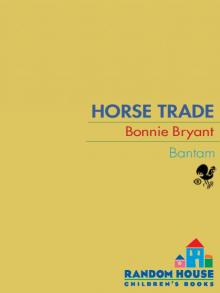 Horse Trade
Horse Trade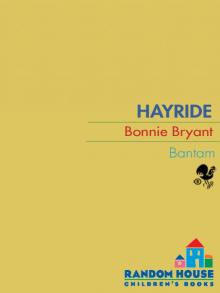 Hayride
Hayride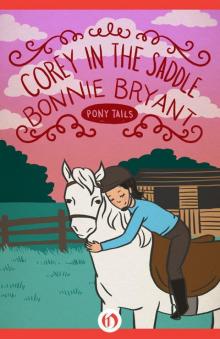 Pony Tails 06- Corey in the Saddle
Pony Tails 06- Corey in the Saddle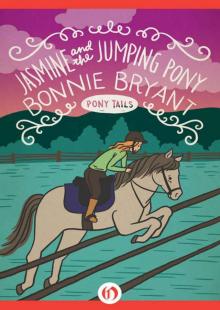 Jasmine and the Jumping Pony (Pony Tails Book 16)
Jasmine and the Jumping Pony (Pony Tails Book 16)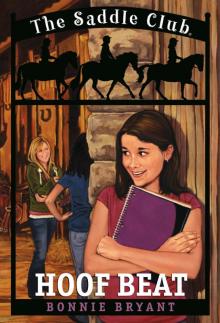 Hoof Beat
Hoof Beat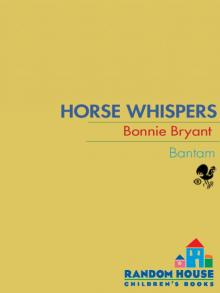 Horse Whispers
Horse Whispers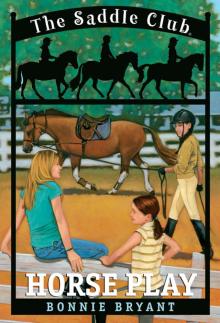 Horse Play
Horse Play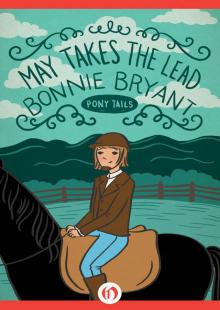 Pony Tails 05- May Takes the Lead
Pony Tails 05- May Takes the Lead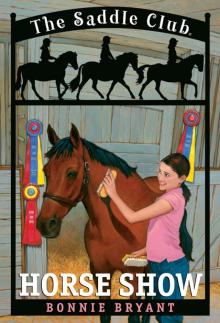 Horse Show
Horse Show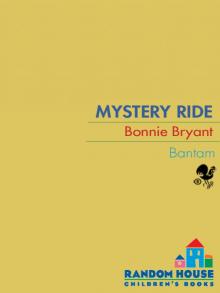 Mystery Ride
Mystery Ride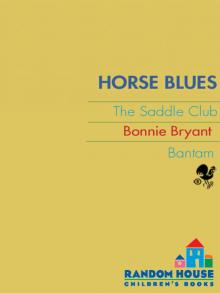 Horse Blues
Horse Blues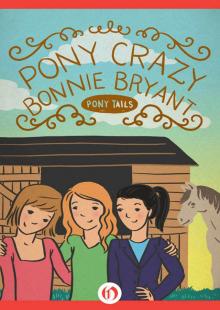 Pony Tails 01- Pony Crazy
Pony Tails 01- Pony Crazy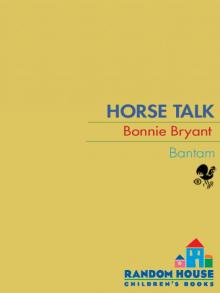 Horse Talk
Horse Talk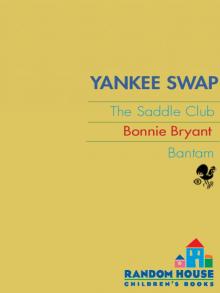 Yankee Swap
Yankee Swap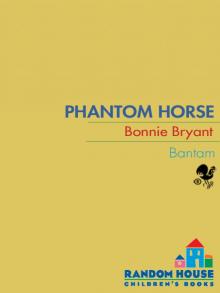 Phantom Horse
Phantom Horse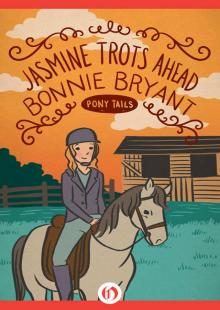 Pony Tails 07- Jasmine Trots Ahead
Pony Tails 07- Jasmine Trots Ahead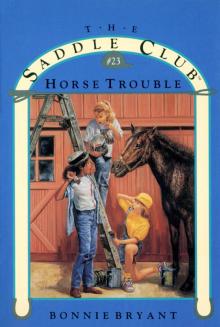 Horse Trouble
Horse Trouble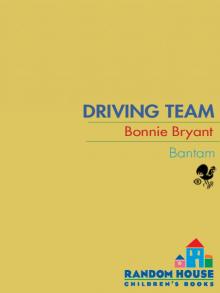 Driving Team
Driving Team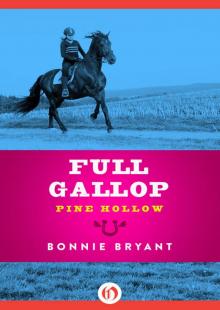 Full Gallop
Full Gallop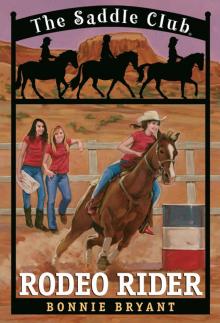 Rodeo Rider
Rodeo Rider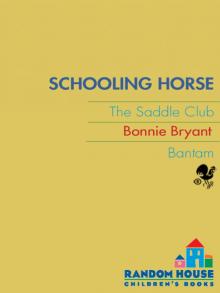 Schooling Horse
Schooling Horse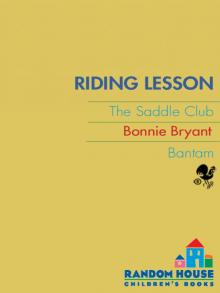 Riding Lesson
Riding Lesson Million-Dollar Horse
Million-Dollar Horse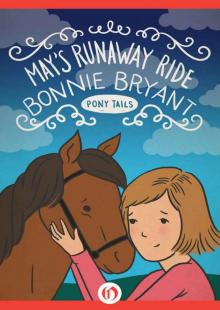 May's Runaway Ride (Pony Tails Book 14)
May's Runaway Ride (Pony Tails Book 14)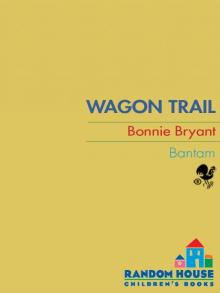 Wagon Trail
Wagon Trail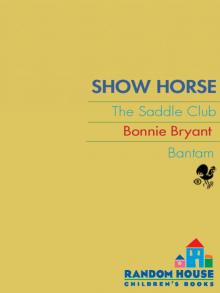 Show Horse
Show Horse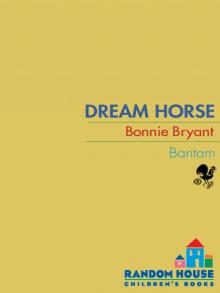 Dream Horse
Dream Horse High Horse
High Horse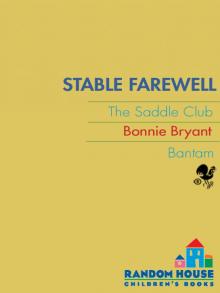 Stable Farewell
Stable Farewell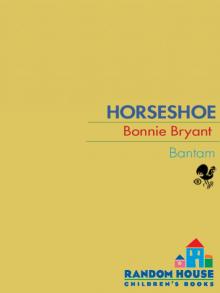 Horseshoe
Horseshoe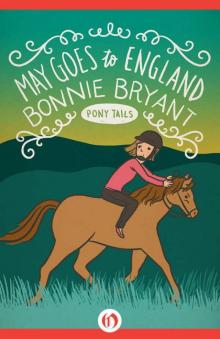 May Goes to England (Pony Tails Book 11)
May Goes to England (Pony Tails Book 11)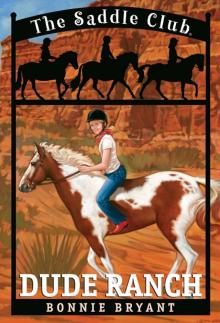 Dude Ranch
Dude Ranch Wild Horse
Wild Horse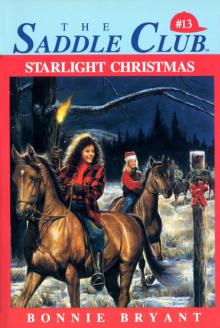 Starlight Christmas
Starlight Christmas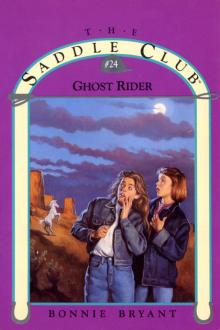 Ghost Rider
Ghost Rider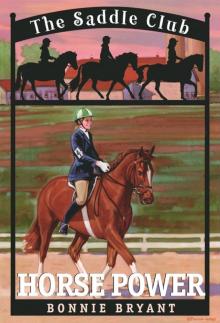 Horse Power
Horse Power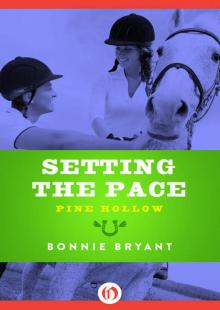 Setting the Pace
Setting the Pace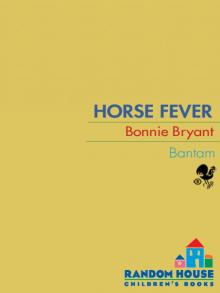 Horse Fever
Horse Fever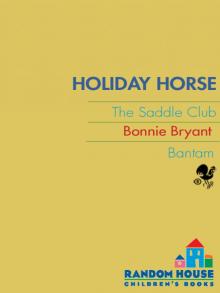 Holiday Horse
Holiday Horse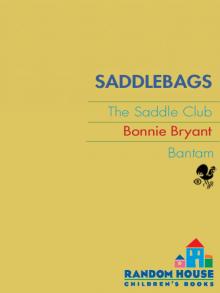 Saddlebags
Saddlebags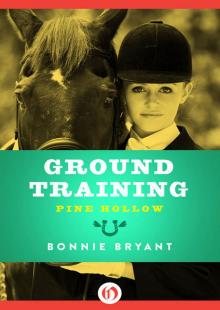 Ground Training
Ground Training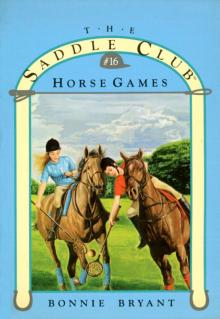 Horse Games
Horse Games Endurance Ride
Endurance Ride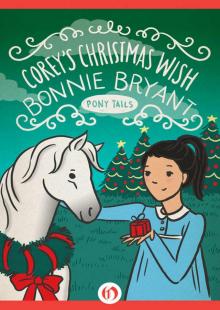 Pony Tails 15- Corey's Christmas Wish
Pony Tails 15- Corey's Christmas Wish Christmas Treasure
Christmas Treasure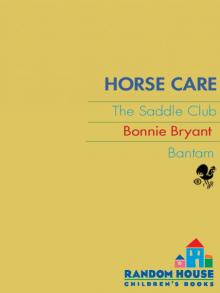 Horse Care
Horse Care Stagecoach
Stagecoach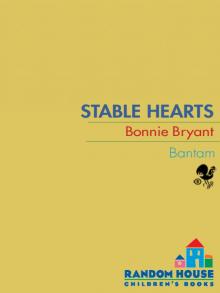 Stable Hearts
Stable Hearts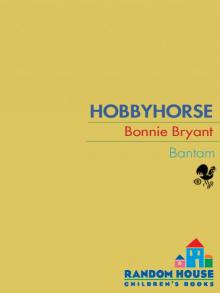 Hobbyhorse
Hobbyhorse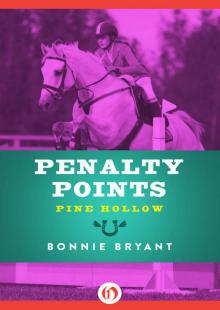 Penalty Points
Penalty Points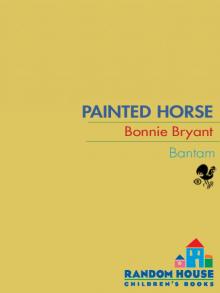 The Painted Horse
The Painted Horse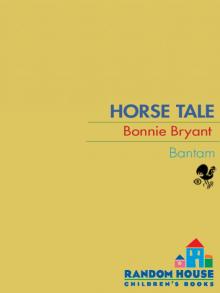 Horse Tale
Horse Tale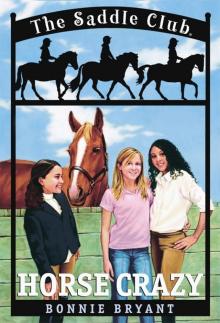 Horse Crazy
Horse Crazy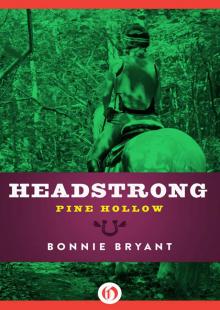 Headstrong
Headstrong English Rider
English Rider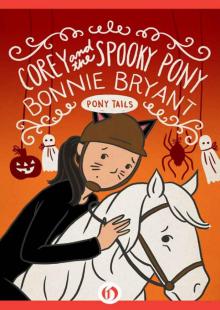 Corey and the Spooky Pony (Pony Tails Book 9)
Corey and the Spooky Pony (Pony Tails Book 9)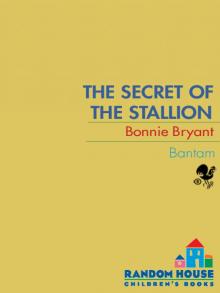 Secret of the Stallion
Secret of the Stallion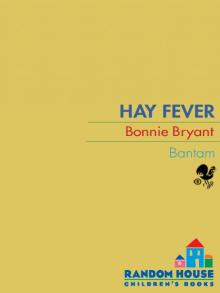 Hay Fever
Hay Fever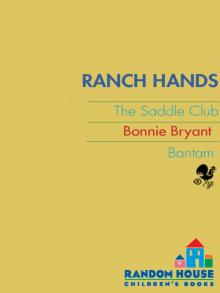 Ranch Hands
Ranch Hands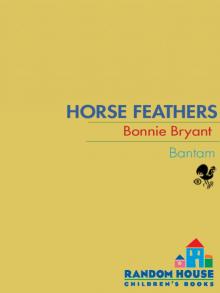 Horse Feathers
Horse Feathers Western Star
Western Star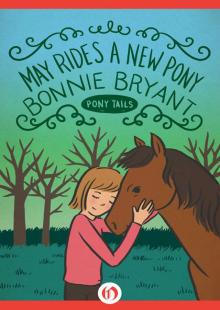 Pony Tails 08- May Rides a New Pony
Pony Tails 08- May Rides a New Pony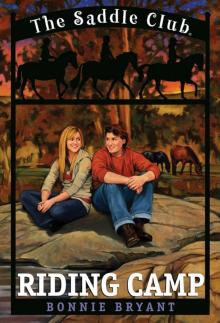 Riding Camp
Riding Camp Purebred
Purebred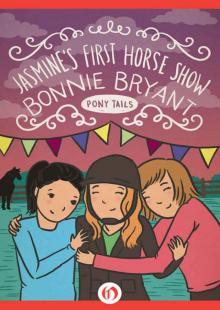 Jasmine's First Horse Show (Pony Tails Book 13)
Jasmine's First Horse Show (Pony Tails Book 13)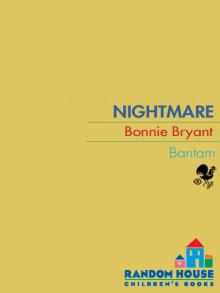 Nightmare
Nightmare The Long Ride
The Long Ride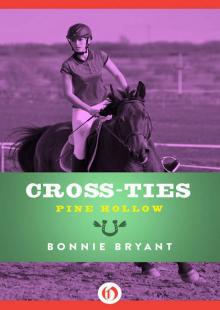 Cross-Ties
Cross-Ties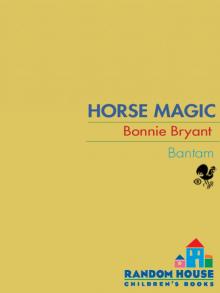 Horse Magic
Horse Magic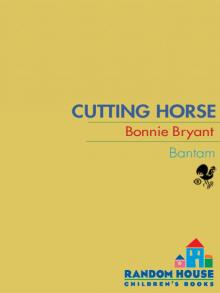 Cutting Horse
Cutting Horse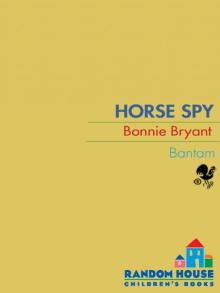 Horse Spy
Horse Spy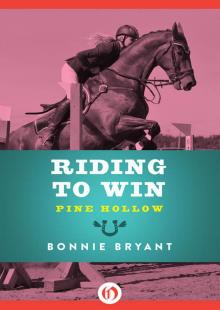 Riding to Win
Riding to Win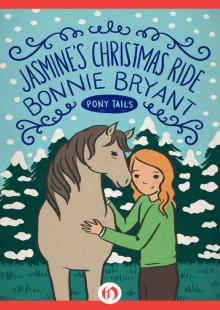 Pony Tails 04- Jasmine's Christmas Ride
Pony Tails 04- Jasmine's Christmas Ride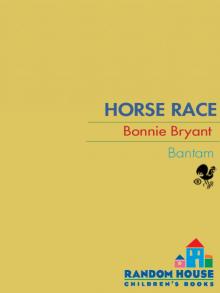 Horse Race
Horse Race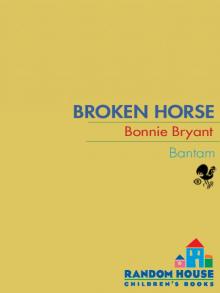 Broken Horse
Broken Horse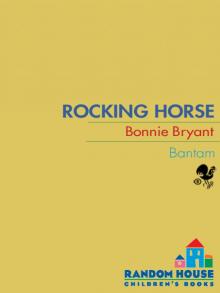 Rocking Horse
Rocking Horse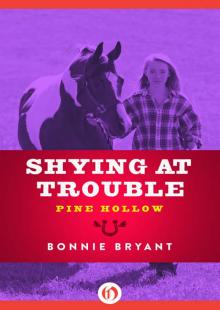 Shying at Trouble
Shying at Trouble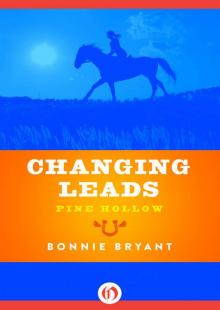 Changing Leads
Changing Leads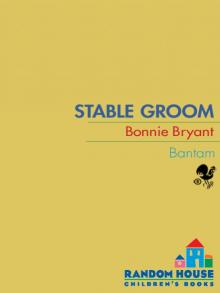 Stable Groom
Stable Groom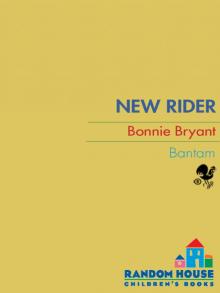 New Rider
New Rider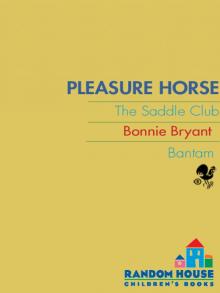 Pleasure Horse
Pleasure Horse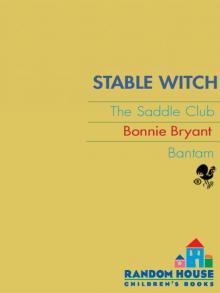 Stable Witch
Stable Witch Hard Hat
Hard Hat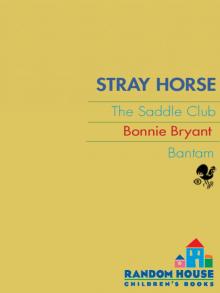 Stray Horse
Stray Horse High Stakes
High Stakes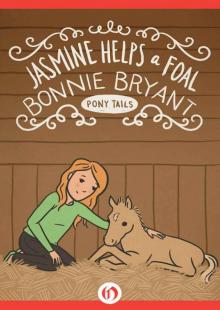 Jasmine Helps a Foal (Pony Tails Book 10)
Jasmine Helps a Foal (Pony Tails Book 10) English Horse
English Horse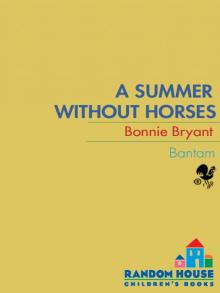 A Summer Without Horses
A Summer Without Horses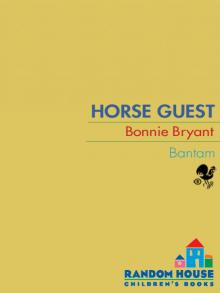 Horse Guest
Horse Guest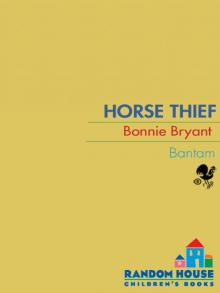 Horse Thief
Horse Thief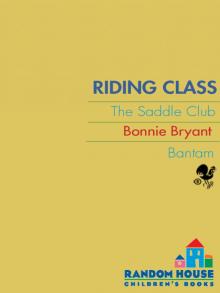 Riding Class
Riding Class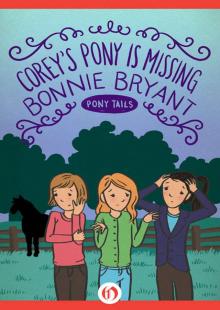 Pony Tails 03- Corey's Pony Is Missing
Pony Tails 03- Corey's Pony Is Missing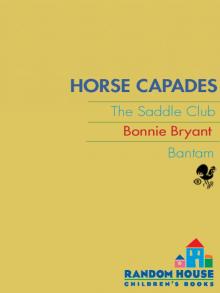 Horse Capades
Horse Capades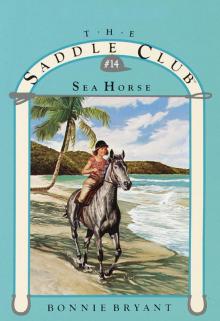 Sea Horse
Sea Horse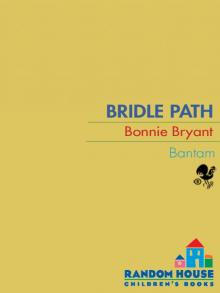 Bridle Path
Bridle Path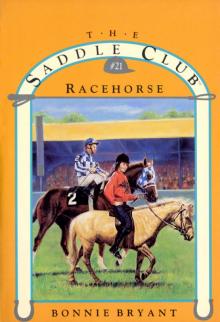 Racehorse
Racehorse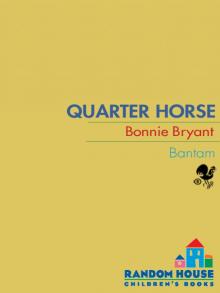 Quarter Horse
Quarter Horse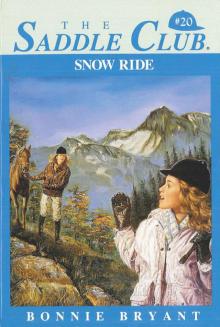 Snow Ride
Snow Ride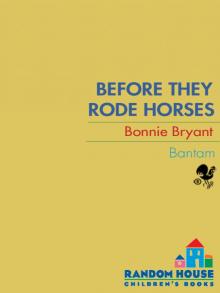 Before They Rode Horses
Before They Rode Horses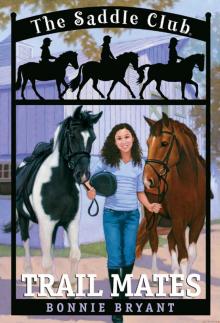 Trail Mates
Trail Mates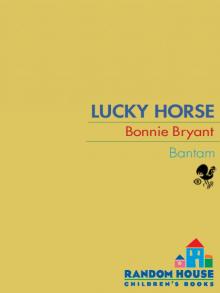 Lucky Horse
Lucky Horse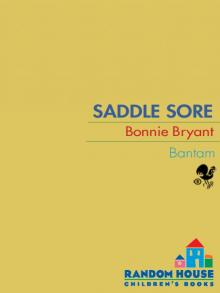 Saddle Sore
Saddle Sore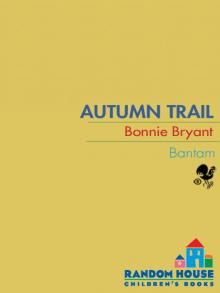 Autumn Trail
Autumn Trail Lisa
Lisa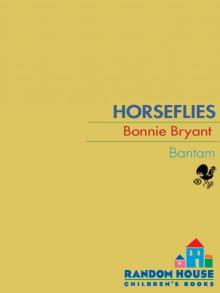 Horseflies
Horseflies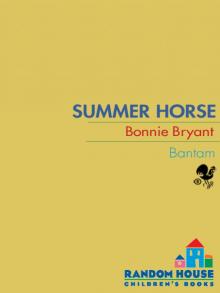 Summer Horse
Summer Horse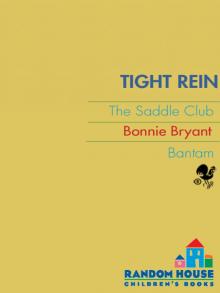 Tight Rein
Tight Rein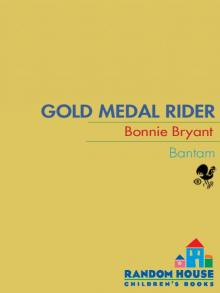 Gold Medal Rider
Gold Medal Rider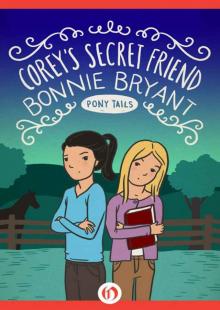 Corey's Secret Friend (Pony Tails Book 12)
Corey's Secret Friend (Pony Tails Book 12)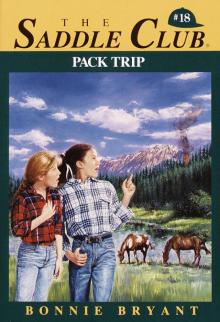 Pack Trip
Pack Trip Chocolate Horse
Chocolate Horse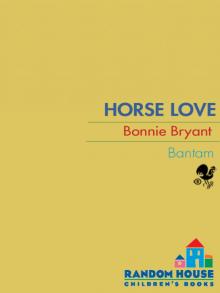 Horse Love
Horse Love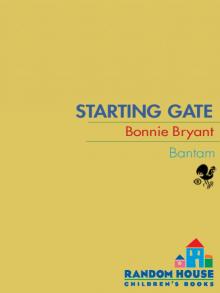 Starting Gate
Starting Gate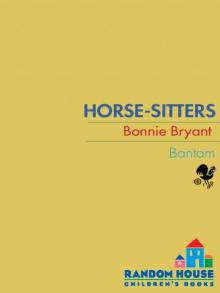 Horse-Sitters
Horse-Sitters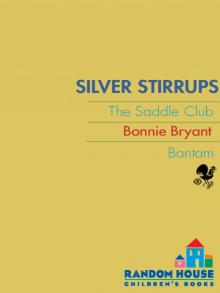 Silver Stirrups
Silver Stirrups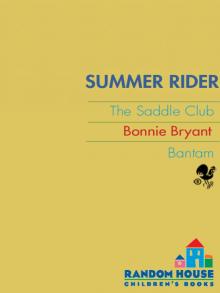 Summer Rider
Summer Rider Beach Ride
Beach Ride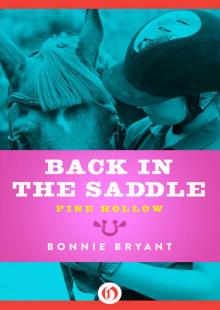 Back in the Saddle
Back in the Saddle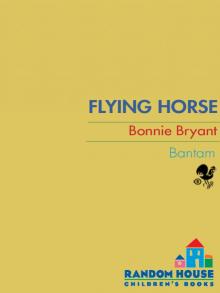 Flying Horse
Flying Horse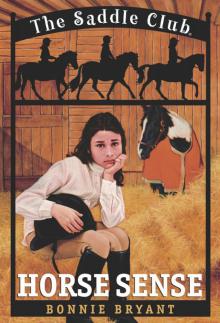 Horse Sense
Horse Sense Photo Finish
Photo Finish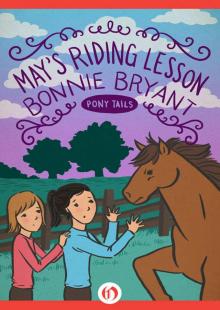 Pony Tails 02- May's Riding Lesson
Pony Tails 02- May's Riding Lesson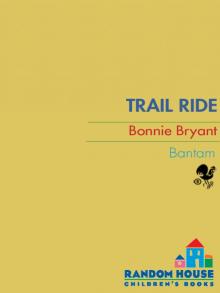 Trail Ride
Trail Ride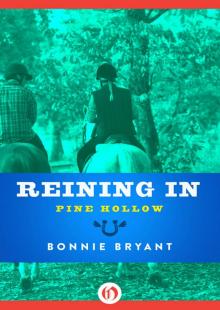 Reining In
Reining In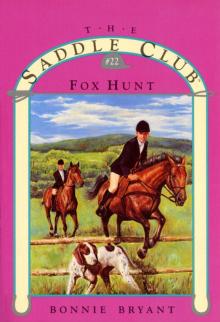 The Fox Hunt
The Fox Hunt Show Judge
Show Judge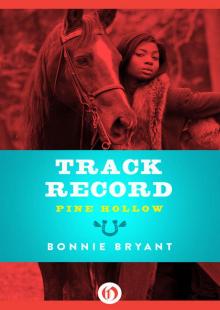 Track Record
Track Record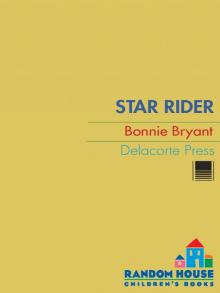 Star Rider
Star Rider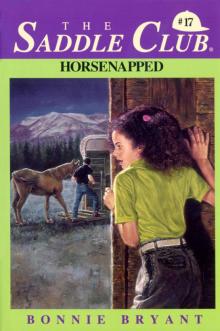 Horsenapped!
Horsenapped!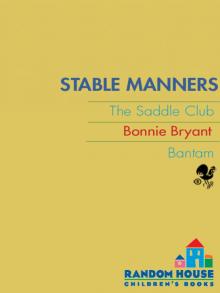 Stable Manners
Stable Manners Show Jumper
Show Jumper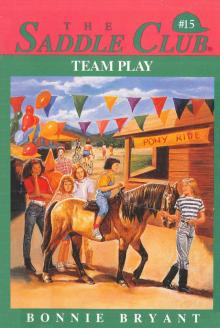 Team Play
Team Play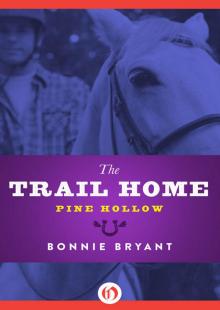 The Trail Home
The Trail Home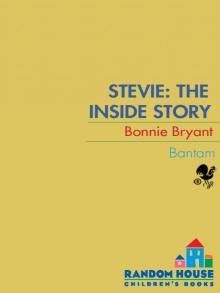 Stevie
Stevie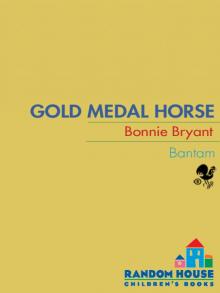 Gold Medal Horse
Gold Medal Horse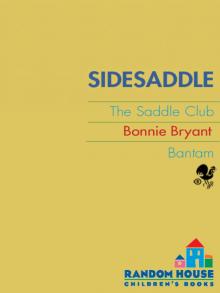 Sidesaddle
Sidesaddle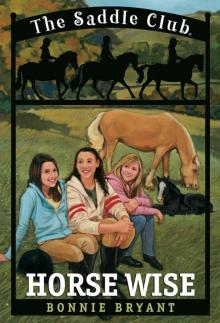 Horse Wise
Horse Wise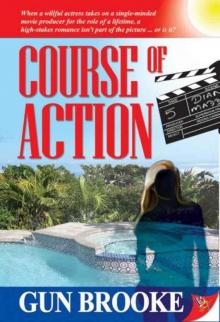 Course of Action
Course of Action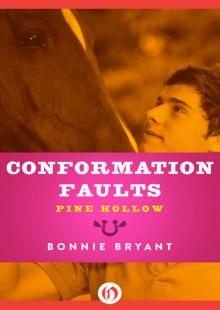 Conformation Faults
Conformation Faults